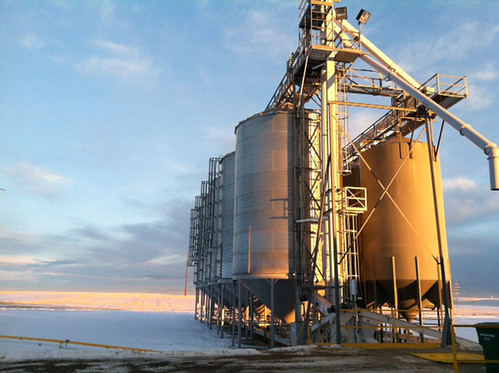
This is the twenty-third installment of the Organic 101 series that explores different aspects of the USDA organic regulations.
According to a 2014 USDA Economic Research Service report, consumer demand for organically produced products continues to show double-digit growth. This year, the Montana Organic Association’s (MOA) annual meeting highlighted the sector’s ongoing growth with its theme of Organic Business: Benefitting Producers and Consumers. As USDA’s Organic Policy Advisor, I represented USDA at MOA’s conference and presented information about USDA’s support for the growing organic community.
MOA’s mission is to advocate for and promote organic agriculture for the highest good of the people, the environment and the state's economy. The conference brought in over 200 people, a large number in a rural state with just over 200 certified organic operations. MOA President Nate Brown noted, "The Montana Organic Association annual conference is our biggest event of the year and has been the lifeblood of the organization for the past 12 years. We feel the conference is a great way to bring together Montana's organic community every year for a weekend of learning and socializing in order to keep up with the growing organic market in our state."
Montana is a leading producer of certified organic wheat, dry peas, lentils and flax. MOA provides the state’s organic community with valuable education, information, support, assistance, promotion, and representation.
While many of the participants were longtime friends and organic farmers, the conference also brought in new faces, as more and more farmers consider the organic option. Throughout all the presentations, and several field visits, there was one common theme: the demand for organic products keeps on growing. The conference was attended by a full spectrum of the organic community and featured a keynote address by Senator Jon Tester. Participants found the USDA presentation timely and complimentary to the conference goals of building a business and staying in business. MOA members shared locally-produced organic food at almost every meal, and Friday evening featured a rousing fundraising auction to raise funds for the organization.
As producers look ahead to planting their crops in 2015, many participants were interested in the USDA Market News reports on grains, new risk management and crop insurance tools, and further education on the organic certification process. Participants also discussed the shortage of organic supply to meet the growing demand for organic products, the organic certification process, and the organic standards.
I was thankful to see firsthand how MOA’s conference brings together Montana's organic community to help keep up with the state’s growing organic market. I was able to share information about various USDA programs and services – including the Organic Literacy Initiative and the Sound and Sensible initiative – that are making organic certification more accessible, attainable, and affordable.
We are excited to be collaborating with many partners in support of a diverse community of organic stakeholders, and we have launched a number of new and expanded efforts to connect organic farmers and businesses with the resources they need to ensure the continued growth of the organic sector domestically and abroad. In fact, USDA has a one-stop-shop for information on all of our programs and opportunities for the organic community. Be sure to check it out.



